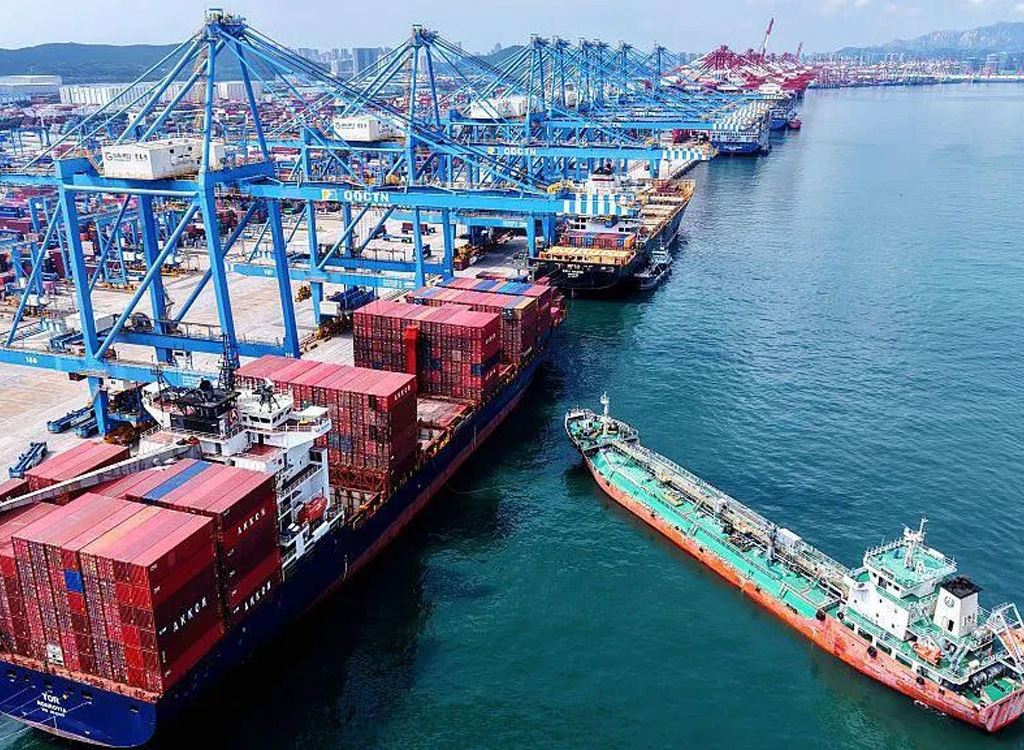The US and China have extended their trade truce until 10 November, just hours before the world’s two biggest economies were set to hike tariffs on each other.
Triple-digit tariffs that were announced earlier this year will be suspended for another 90 days, Beijing and Washington said in a joint statement.
Talks last month ended with both sides calling the discussions “constructive”. China’s top negotiator said at the time that the two countries would push to preserve the truce, while US officials said they were waiting for final sign-off from President Donald Trump.
On Monday, Trump signed an executive order to extend the truce.
It means Washington will further delay imposing 145% tariffs on Chinese goods and Beijing will continue its pause on 125% duties on US shipments.
Under the agreement, the US will hold its tariffs on Chinese imports at 30%, while China will keep a 10% tariff on American goods.
The truce extension will give more time for negotiations about “remedying trade imbalances” and “unfair trade practices”, the White House said.
It cited a trade deficit of nearly $300bn (£223bn) with China in 2024 – the largest among any of its trading partner.
The talks will also aim to increase access for US exporters to China and address national security and economic issues, the statement said.
A spokesperson for the Chinese embassy in Washington said: “Win-win cooperation between China and the United States is the right path; suppression and containment will lead nowhere.”
In the statement, China also called on the US to lift its “unreasonable” trade restrictions, work together to benefit companies on both sides and maintain the stability of global semiconductor production.
What tariffs has Trump announced and why?
A return of higher duties would have risked further trade turmoil and uncertainty amid worries about the effect of tariffs on prices and the economy.
Trade tensions between the US and China reached fever pitch in April, after Trump unveiled sweeping new tariffs on goods from countries around the world, with China facing some of the highest levies.
Beijing retaliated with tariffs of its own, sparking a tit-for-tat fight that saw tariffs soar into the triple digits and nearly shut down trade between the two countries.
The two sides had agreed to set aside some of those measures in May.
That agreement left Chinese goods entering the US facing an additional 30% tariff compared with the start of the year, with US goods facing a new 10% tariff in China.
The two sides remain in discussions about issues including access to China’s rare earths, its purchases of Russian oil, and US curbs on sales of advanced technology, including chips to China.
Trump recently relaxed some of those export restrictions, allowing firms such as AMD and Nvidia to resume sales of certain chips to firms in China in exchange for sharing 15% of their revenues with the US government.
The US is also pushing for the spin-off of TikTok from its Chinese owner ByteDance, a move that has been opposed by Beijing.
Earlier on Monday in remarks to reporters, Trump did not commit to extending the truce but said dealings had been going “nicely”. A day earlier he called on Beijing to increase its purchases of US soybeans.
Even with the truce, trade flows between the countries have been hit this year, with US government figures showing US imports of Chinese goods in June cut nearly in half compared with June 2024.
In the first six months of the year, the US imported $165bn (£130bn) worth of goods from China, down by about 15% from the same time last year. American exports to China fell roughly 20% year-on-year for the same period.
Source: BBC











Leave a comment